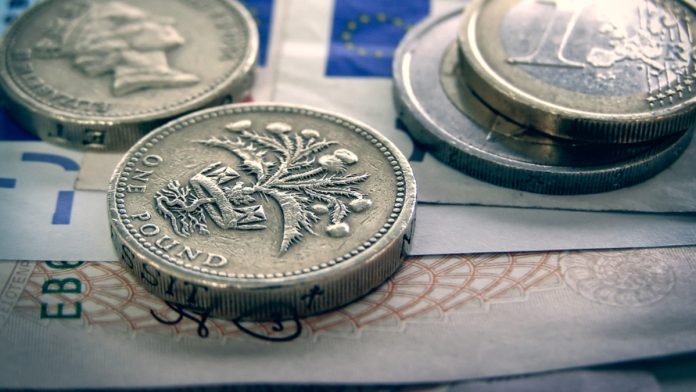- Pound sterling strengthens as investors cheered Johnson’s spending plans
- Euro traded on the back foot across the board
The pound extended gains versus the euro for a fourth straight session on Wednesday.
The pound to euro exchange rate closed the session 0.4% higher at €1.1914 after striking a 2 month high following dismal eurozone data dented demand for the common currency.
GBP to EUR: Pound sterling strengthens as investors cheered Johnson’s spending plans
The pound headed northwards in the previous session as investors cheered Boris Johnson’s spending plans and despite heightened Brexit rhetoric ahead of the start of the post Brexit trade deal talks in March.
Apart from Tuesday’s raft of data, the UK economic calendar has been quiet this week. As a result, investors have been drawn towards Boris Johnson, his spending plans and the cabinet reshuffle.
In a bid to move past Brexit and level up the UK, Boris Johnson has discussed big spending plans this week, including giving the go ahead to HS2. His spending plans come after BoE Governor Mark Carney said that the low interest rate environment would be here for the foreseeable future and that fiscal spending would be a good way to boost the struggling economy. The low interest rate environment means it is a good time for governments to spend. This spending has an inflationary effect, boosting the pound.
Euro traded on the back foot across the board
The euro traded on the back foot across the board in the previous session as the eurozone economic outlook was dented by a sharp drop in industrial output. Industrial production in the bloc slid -2.1% in December on a monthly basis, well below the 0.2% increase in November. On an annual basis industrial output slumped -4.1%, significantly lower than the -1.7% decline forecast. This was the weakest performance in the region since the 2012 eurozone sovereign debt crisis.
Recent survey data in the eurozone had fuelled optimism that the slump in the eurozone’s manufacturing sector was bottoming out., However, today’s data combined with growing concerns over the impact of coronavirus on the global economy has caused economists to consider cutting their growth estimates for the eurozone.
Today investors will continue to watch data coming from the bloc. German inflation figures will be the most closely monitored release. Analysts are expecting inflation to remain steady at 1.7% in January.





